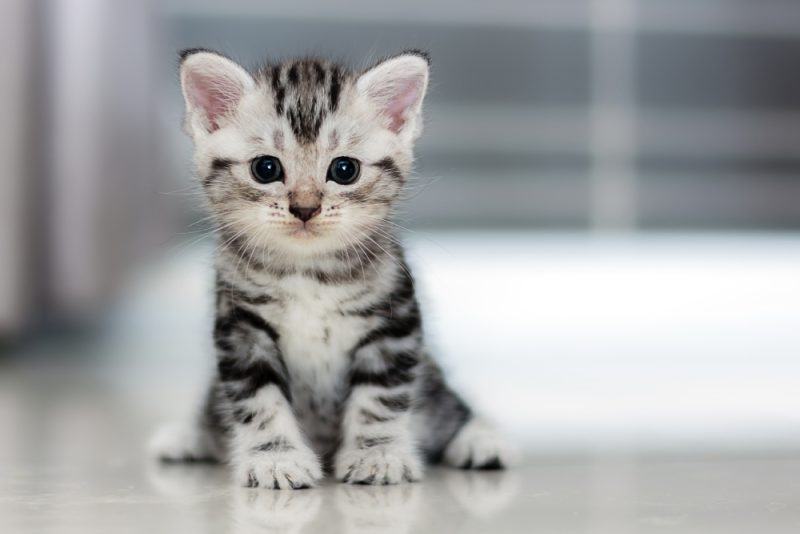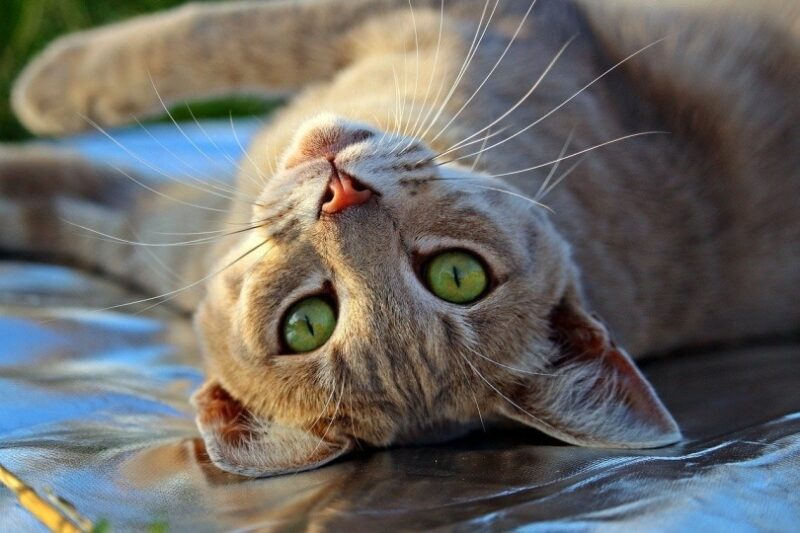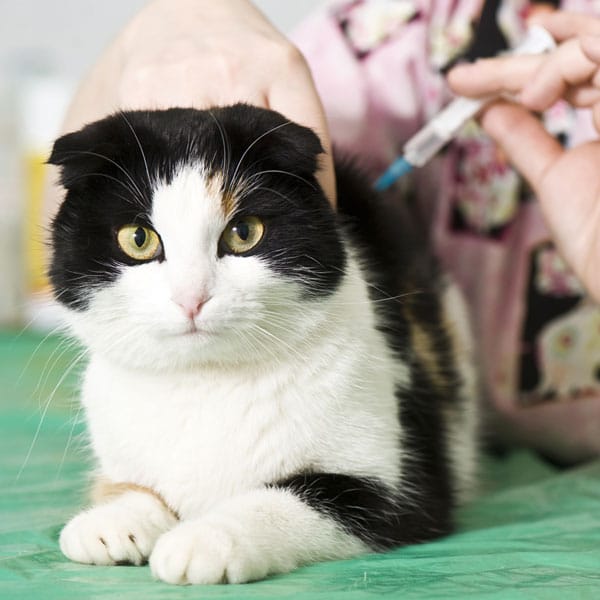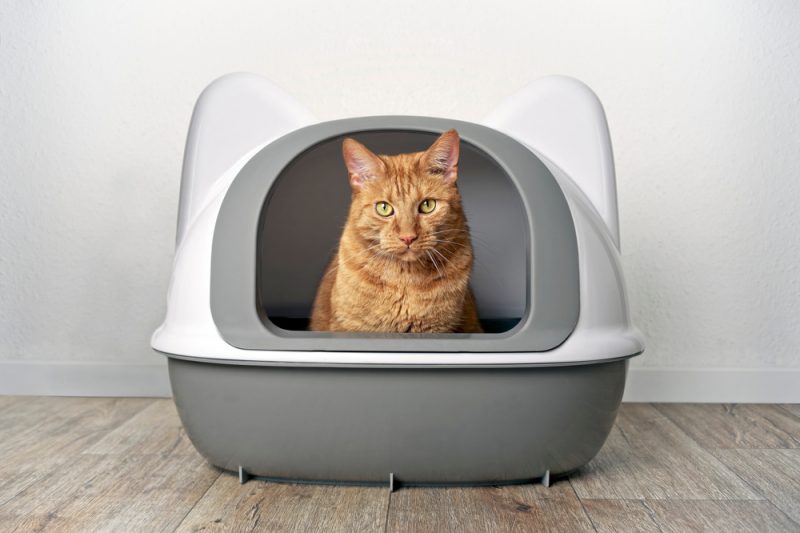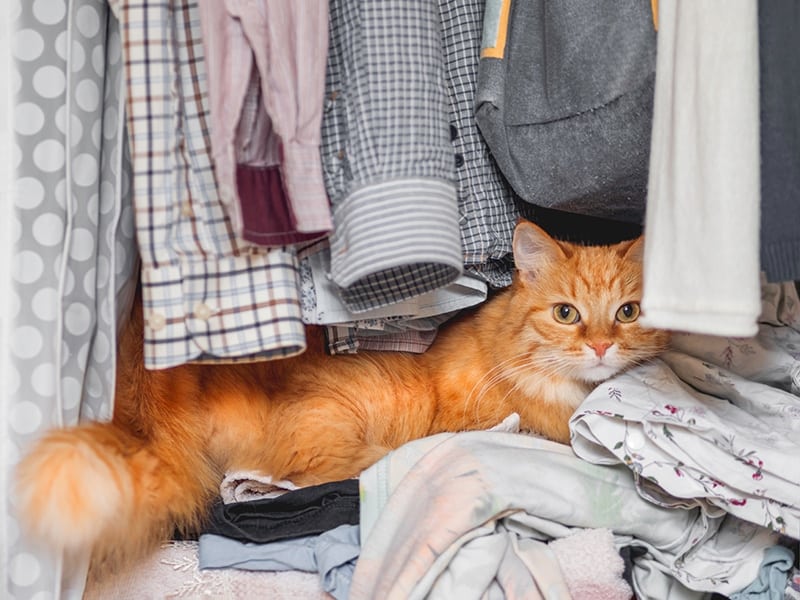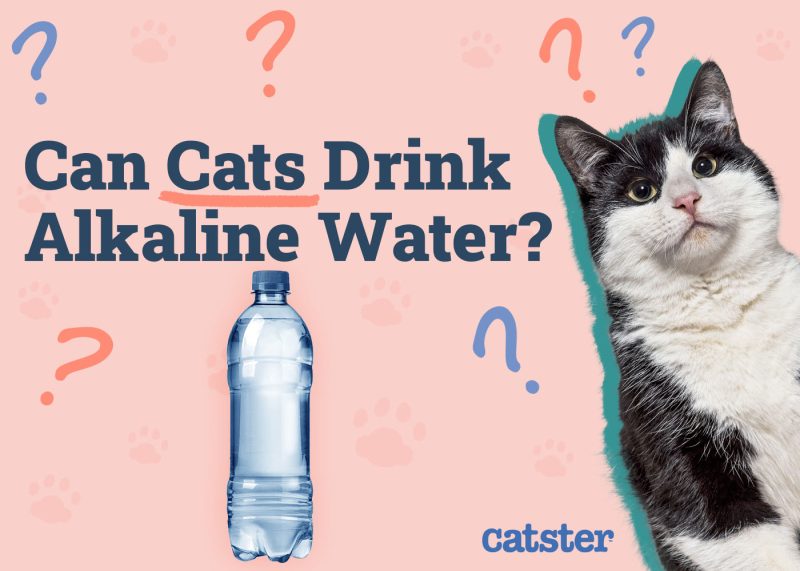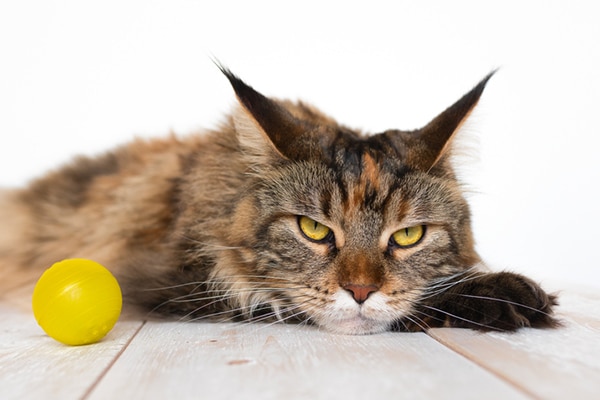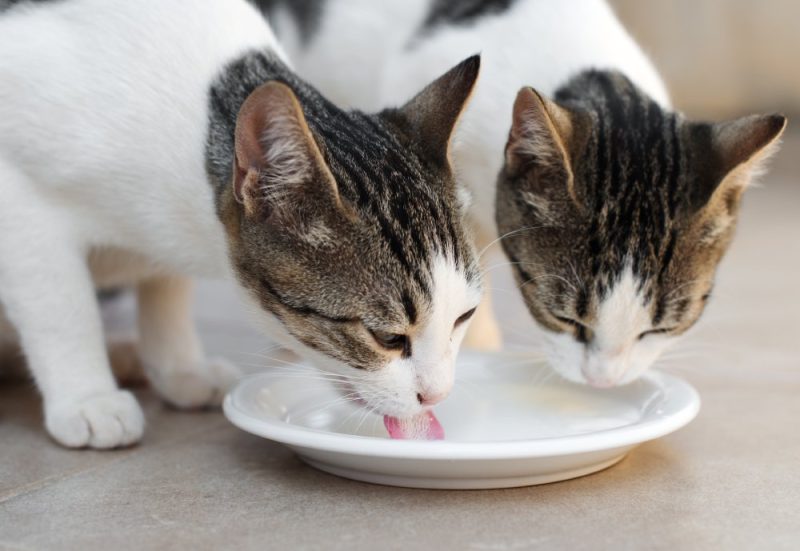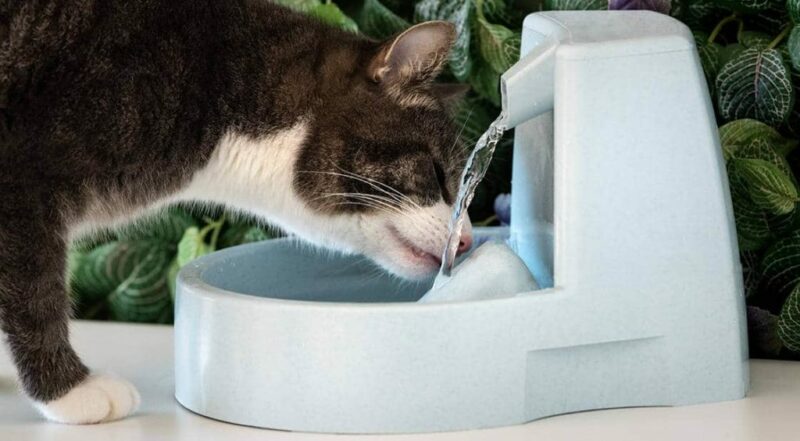In this article
Swimmer syndrome is a developmental abnormality that occurs in newborn kittens. The condition can be observed starting at the age of 15–20 days. This anomaly causes the hind legs (and sometimes the front legs) to move caudally and laterally, like a frog. Cats suffering from this condition look like they are swimming.
The exact cause of this condition is still unknown. Although swimmer syndrome in cats can lead to mobility problems, the disease can be treated if it is addressed in time. So, if you see the clinical signs in your kitten, contact a veterinarian as soon as possible!
In this article, you will learn what swimmer syndrome in cats is, the causes of this condition, the clinical signs, the treatment, and what else you can do for your cat.

What Is Swimmer Syndrome in Cats?
Swimmer syndrome is a developmental abnormality in young, newborn kittens (it becomes obvious when the kitten is 15–20 days of age). It is characterized by a weakness of the hind limbs, which leads to walking and standing difficulties1.
The name of this condition comes from the fact that the affected kitten always sits with their chest on the ground and their back legs stretched sideways. The affected kittens will have a posture similar to that of frogs: The hips will come out to the side of the body, and the legs will also be placed to the side.
These kittens find it difficult to stand and walk. The condition is treatable through early intervention and physical therapy, and it is not necessary to euthanize the affected cats.
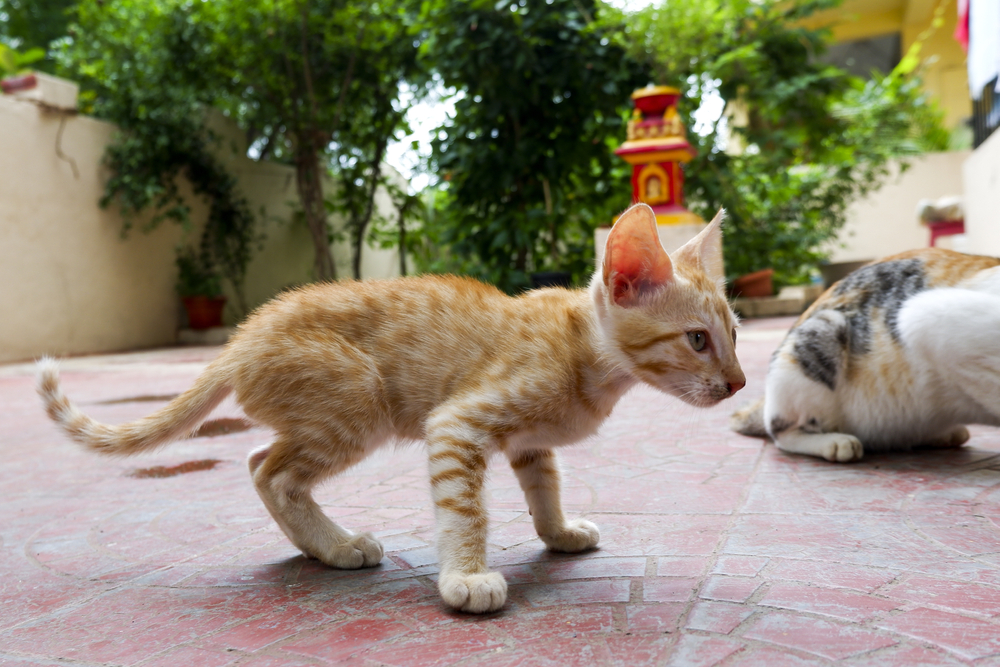
What Are the Signs of Swimmer Syndrome in Cats?
Swimmer syndrome affects only newborn kittens. They are born with this condition; they do not acquire it along the way. The clinical signs are few, but the position of your cat’s legs will tell you everything. The affected kitten will not be able to walk or stand.
If your pet is showing these signs, we suggest you speak to a vet.
If you need to speak with a vet but can't get to one, head over to PangoVet. It's an online service where you can talk to a vet online and get the advice you need for your pet — all at an affordable price!

What Are the Causes of Swimmer Syndrome in Cats?
The exact causes of this syndrome in cats are not known. However, some vets attribute it to genetic and environmental factors. It is suspected that this condition may be one of the many consequences of inbreeding. Also, an unbalanced diet of the mother can lead to musculoskeletal development problems in kittens. The tendons of the locomotor system can be weakened, which will make the hips flexible and the limbs turn outward. The tendons are weakened, which makes the hips flexible and the limbs turn outward.
Swimmer syndrome can occur in any cat breed.
What Is the Treatment for Swimmer Syndrome in Cats?
The diagnosis of this condition is made only by the visual observation of the affected kittens; there are no specific tests to diagnose swimmer syndrome. The treatment must be started as early as possible for a favorable prognosis.
It was once believed that there was no cure for this condition, and many pets were euthanized unnecessarily. Fortunately, swimmer syndrome can now be treated, and many cats can develop normally without their gait being affected.
The treatment can consist of swimming sessions, other physical therapy exercises, and massage, which will help your cat use their limbs correctly. The vet will also use adhesive plaster bandages or medical tape to wrap the kitten’s legs together. This bandage will keep the affected cat’s limbs in the correct position, providing stability. Also, massaging your cat’s muscles and feeding them a proper diet can help your pet recover faster.
If the affected kitten is left to sit with their chest on the floor for a long period, they can develop a condition called flat-chested kitten syndrome (FCKS), which can be fatal. FCKS can cause skin lesions on the chest, breathing problems, and food regurgitation. Cats can eventually die due to lung collapse. Therefore, it is necessary to consult a vet and treat swimmer syndrome quickly.
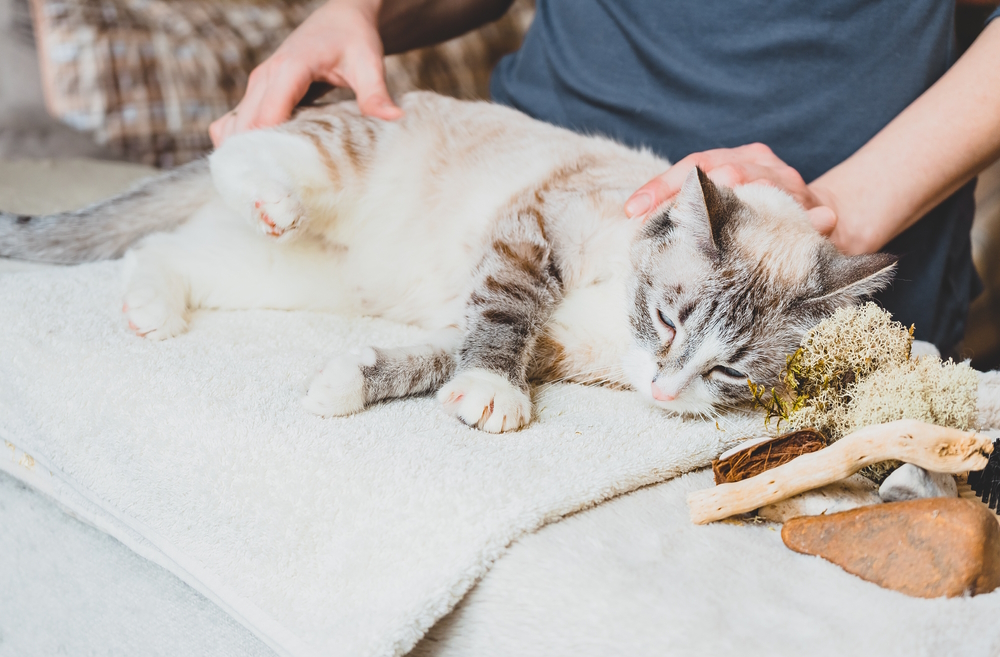
How Do I Care for a Cat or Kitten With Swimmer Syndrome?
If you think that your kitten is suffering from swimmer syndrome, here is what you can do to help them:
- Contact the vet for an evaluation, an accurate diagnosis, and a treatment plan.
- Your vet will demonstrate how to tape or bandage your kitten’s limbs in the correct position, using the right amount of tension. Do not attempt to do this before seeking veterinary advice, as the incorrect positioning could lead to more problems. If you shape your kitten’s legs regularly in the normal position, their muscles, bones, and ligaments will be trained to stay in the proper configuration, and your kitten will start to have the correct posture and movement.
- Do physical therapy with your kitten daily (doing a range of motion exercises, cycling, placing their feet under their body when they are eating, swimming, using heat, and/or massaging each leg).
- Change their diet according to the vet.

Frequently Asked Questions (FAQ)
Can a Cat Live With Swimmer Syndrome?
Swimmer syndrome is a developmental abnormality, and a kitten is born with it. Without treatment, the kitten will end up sitting on their sternum all the time because they cannot walk or stand. It can lead to the development of other conditions that can be fatal, such as flat-chested kitten syndrome. Cats affected by FCKS will eventually die due to lung collapse. For this reason, veterinarians often recommend euthanasia.
Does Swimmer Syndrome Hurt Kittens?
Besides the fact that this syndrome makes it impossible for the affected kitten to stand or move normally, it can lead to severe (even fatal) complications because the affected kitten will sit on their chest all the time.
Why Is My Cat Walking Weird With Their Back Legs?
Incoordination, ataxia, or wobbly walking is a clinical sign that shows that your cat may suffer from a neurological or inner ear condition. Neurological disorders can be primary or secondary to kidney disease, infections, trauma, poisoning with chemicals, drugs, toxins, plants, etc. Therefore, if your cat is walking funny, contact the vet immediately.

Conclusion
Swimmer syndrome in kittens is a congenital condition, which can be observed at the age of 15–20 days. Kittens with swimmer syndrome cannot walk normally or stand because their back legs are in a lateral position, like a frog. Clinical signs include the position of the hind limbs and the fact that the kitten cannot walk or stand. The diagnosis is made only based on the clinical signs; there are no specific tests.
Fortunately, this condition is treatable but early intervention is required. The treatment consists of wrapping the affected kitten’s legs together with medical tape that should be changed once or twice per day. In addition, physical therapy will do wonders. If you think that your kitten is suffering from swimmer syndrome, contact your vet as soon as possible.
Related Reads:
- Manx Syndrome in Cats: Our Vet Explains the Causes, Signs & Treatment
- Single Kitten Syndrome: What Is It? Vet-Reviewed Facts & Myths
Featured Image Credit: Top Photo Engineerm Shutterstock
